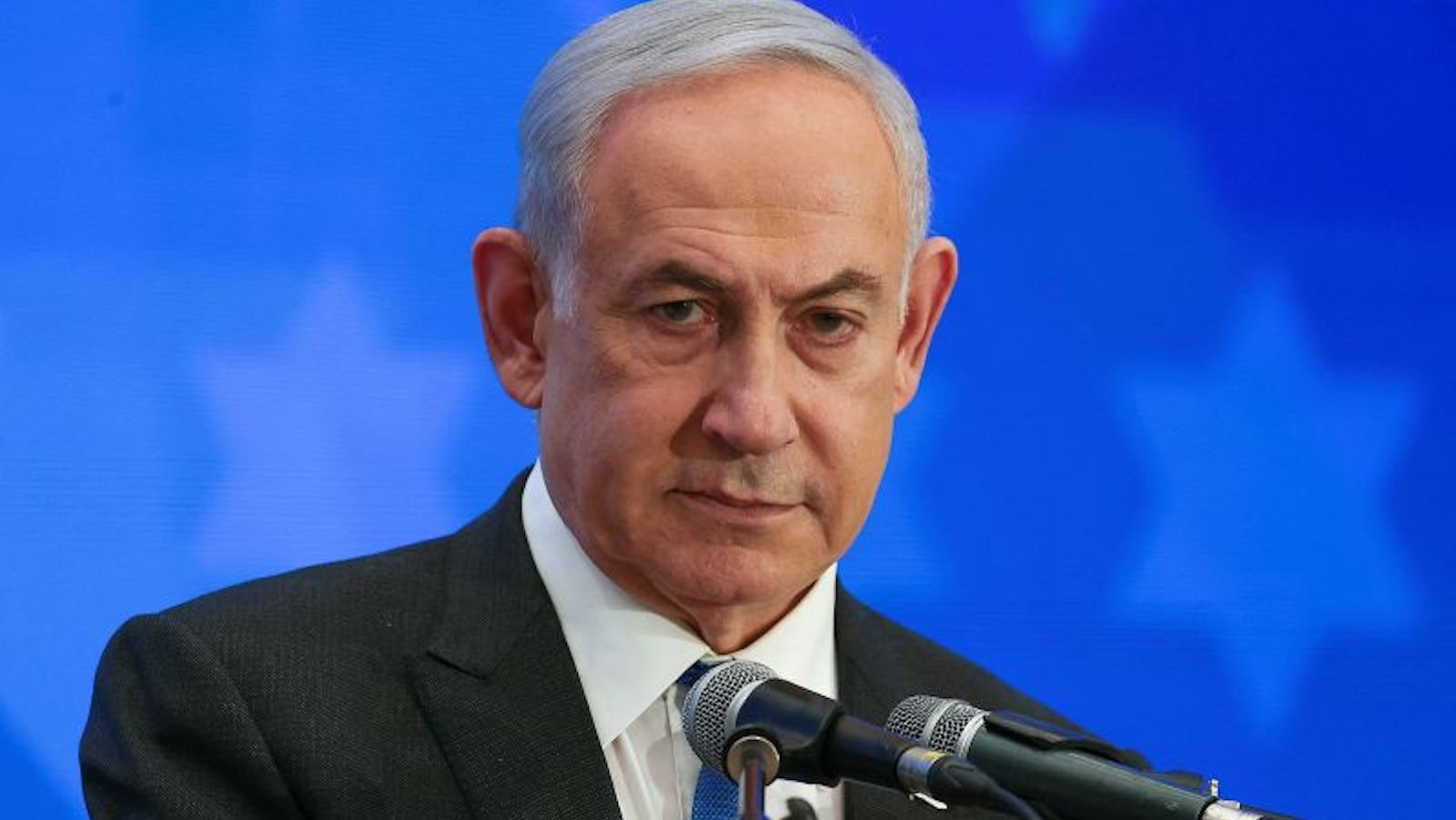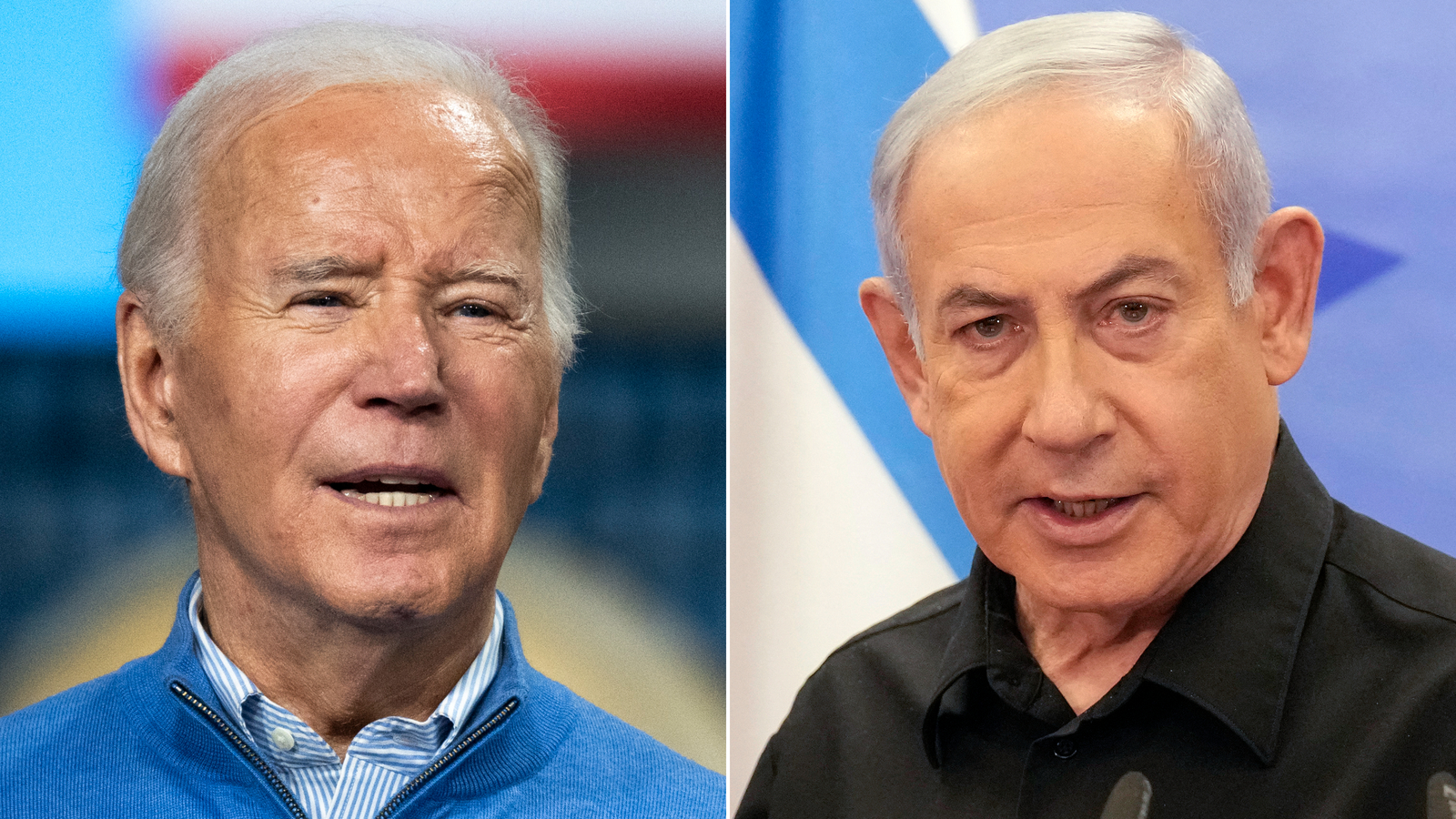Netanyahu’s viability as Israel’s leader is in jeopardy, says US intelligence report

(CNN) — The US intelligence community believes Israeli Prime Minister Benjamin Netanyahu’s “viability as a leader” is “at risk”, according to its annual report on national security threats to the United States, presented to Congress on Monday.
“Distrust in Netanyahu’s ability to govern has deepened and broadened in public opinion from its already high pre-war level, and we expect large protests demanding his resignation and new elections,” the report said. “A different, more moderate government is likely.”
Netanyahu faced severe criticism within Israel for his government’s failure to predict or prevent the October 7 attacks, when the Hamas terrorist group killed 1,200 Israelis and took 240 hostages. Public polls also suggest that many Israelis question whether Netanyahu’s crushing military offensive, which has devastated Gaza and killed tens of thousands, is the best way to recover the hostages.
The intelligence report notes that the Israeli population broadly supports the destruction of Hamas. But his assessment of Netanyahu’s political fortunes nonetheless offers a harsh report on a leader whom President Joe Biden once claimed to “love.”
The report comes amid an increasingly tense – and public – split between the two leaders over the number of civilian casualties in Gaza.

The President of the United States, Joe Biden, and the Prime Minister of Israel, Benjamin Netanyahu. (Credit: Getty Images)
As reports of civilian casualties and, increasingly, starvation and disease mount, the Biden administration has pressed Israel to allow more aid to the Palestinian enclave. In an interview over the weekend, Biden warned that Netanyahu was “hurting Israel more than helping it.”
Netanyahu responded in another interview that if Biden is suggesting that “I am pursuing private policies against the will of the majority of Israelis, and that they harm Israeli interests, then he is wrong on both counts.”
The US intelligence report also warned that Israel would have difficulty defeating Hamas militarily.
“Israel is likely to face years of sustained armed resistance from Hamas and the military will have difficulty neutralizing Hamas’ underground infrastructure, which allows the rebels to hide, gain strength and surprise Israeli forces,” he says.
Military experts and analysts have issued similar assessments, warning that Israel’s aggressive bombing campaign may only serve to inspire future generations of terrorist actors.
Al Qaeda and ISIS are both inspired by Hamas and “direct their followers to carry out attacks against Israel and American interests,” the report said.
The threat of terrorist attacks in America is increasing.
In the United States, the threat of terrorist attacks “has gone to another level” after the October 7 attacks, FBI Director Chris Ware announced Monday before the Senate Intelligence Committee at a hearing on the release of the report.
“Even before October 7, I would have told this committee that we are at a high risk level from a terrorism perspective, in the sense that this is the first time in a long, long time that I have seen that the threats from extremists are homegrown. Violent extremists; that is jihad-inspired. Extremists, domestic violent extremists, foreign terrorist organizations and state-sponsored terrorist organizations are on the rise at the same time,” Wei said.
The so-called annual threat assessment forms the backbone of the intelligence community’s public communications each year and gives congressional leaders an opportunity to publicly question the nation’s top intelligence officials. It provides an unclassified snapshot of how the intelligence community views the national security threats facing the United States.
The forum, usually focused on security, entered a distinctly political arena on Monday, with Republican lawmakers on the committee repeatedly pressing intelligence officials on security issues related to the United States’ southern border. In the closing moments of the hearing, the committee’s top Democrat, Virginia Sen. Mark Warner, Republican Sen. Jim Risch of Idaho made veiled allegations of politicization of the commission.
“I think one of the things we’ve always prided ourselves (on this commission) is that we can agree without questioning each other’s patriotism, without questioning each other’s motives,” Warner said. “And I hope the term will be upheld.”
Risch responded, referring to Warner and other Democratic senators who criticized the Republican line of questioning: “I’ve been on this committee for 15 years and we do a really good job as long as politics don’t come in, and that’s what happened here this afternoon. The last two presidents.”
Warnings about Ukraine
In their appearances before the commission, both Director of National Intelligence Avril Haynes and CIA Director Bill Burns also issued stark warnings about the state of war in Ukraine, which Russia is believed to have regained control of. Initiative and forced to ration ammunition to Ukraine.
Burns said that without additional U.S. aid, Ukraine “will likely lose land and probably significant land in 2024.” A $60 billion aid package to Ukraine has stalled in the House of Representatives amid Republican resistance to additional funding.
“I think that without additional aid in 2024, you’re going to see a lot more attrition, and that seems to me to be a huge, historic mistake for the United States,” Burns said, referring to the city recently taken by Russia.
With more military support, Burns said, the CIA assesses that “Ukraine could remain on the front lines” and “regain the offensive initiative” in “late 2024, early 2025.”
According to the intelligence community report, Russia is benefiting from both “uncertainties about the future of Western military aid” and “stability” on the battlefield, which “plays to Russia’s strategic military advantages.” And the momentum is increasingly shifting in Moscow’s favor. “
The report also offers an interesting hint about the extent of China’s support for Russia in the conflict, which has long been viewed with suspicion by US officials. According to the report, Beijing has tripled its exports of goods with potential military use to Russia since Moscow launched its invasion of Ukraine in 2022.
China has “provided economic and security support to Russia’s war in Ukraine through support for Russia’s defense industrial base, including the provision of dual-use materials and weapons components,” the report noted.
Trade between the two has been growing since the start of the war – reaching more than US$220 billion in 2023, surpassing its record total volume by 15% in 2022 – and in return, Russia offers cheaper energy prices and greater access to China. Arctic, according to the report.





